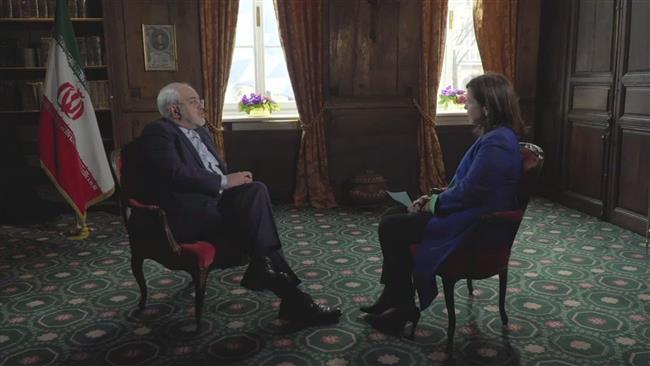“Missiles are our defensive means,” he told the BBC’s chief international correspondent Lyse Doucet in an interview aired on Monday, adding, “We’re a sovereign state. [The projectiles are] for our defence and for being ready to defend ourselves.”
Late last month, Washington’s UN envoy Nikki Haley slammed a missile test by Iran as “absolutely unacceptable.” US President Donald Trump’s former National Security Advisor Michael Flynn also said following the January 29 test that Washington was “officially putting Iran on notice,” claiming that the launch was “in defiance of UN Security Council Resolution 2231.”
The Islamic Republic has, on numerous occasions, asserted that its missiles are not designed to be capable of carrying nuclear warheads, and that it is not involved in such missile work, which is prohibited by the Resolution.
The US, however, also imposed new sanctions against Iran in early February as part of bids to ratchet up pressure on the country, chiefly over Tehran’s missile program.
Further supporting Iran’s defensive work, Zarif recalled the foreign-backed war imposed on Iran by the former Iraqi regime in 1980s, “when everybody in the international system, including the United States” was backing the Arab country under former dictator Saddam Hussein against the Islamic Republic.
“Our people do not forget the fact that they were being bombarded. Everybody was providing assistance to the aggressor and no one, absolutely no one, gave us even the rudimentary means of defence,” he added.
‘Iran not an easy target’
The Iranian top diplomat was then asked for comments on the US, Israel, and Saudi Arabia’s threats of military action against the Islamic Republic.
“First of all, we’re not talking about the law of the jungle. We’re talking about the international law, and according to international law, those options are a violation of international law, and I advise them not only to respect the international law, but to be prudent enough not to get themselves in serious trouble,” he stated.
“I certainly hope that prudence will prevail because Iran is not an easy target. We’re not going to provoke anybody. We’re not going to instigate any hostility. We’ve never started hostility, and we’re not planning to do it,” said Zarif.
He added, however, that “we will defend ourselves. I do not believe that people looking at our history, people looking at our capabilities will ever make the decision to engage in that misadventure.”
Iran deal ‘Washington’s last resort’
Elsewhere, Zarif addressed the issue of Iran’s 2015 nuclear deal with six world countries, including the US, saying Washington opted to sign the accord “because it didn’t have any choice.”
The US, he said, had already exhausted the means of applying pressure on the Islamic Republic, including sanctions.
“Those sanctions produced the exact opposite political outcome. They put economic pressure on Iran, but the Iranian people resisted. The Iranian people stood up against those pressures,” said the top Iranian diplomat.
He described the deal, known as the Joint Comprehensive Plan of Action, as a “reasonable agreement,” saying it “is not everything that they wanted, nor was it everything we wanted. But it’s a reasonable middle ground, and I believe if the previous administration had other options, it would have exercised them.”
Read more:
- Iran unmoved by US threats: FM
- Iran responds to US actions by boosting missile power: Zarif
- Iran missile tests no JCPOA breach: Zarif
Trump has adopted a harsh language towards Iran, threatening to “tear up” the nuclear deal, calling Iran “terrorist state number one,” and imposing new sanctions against the Islamic Republic.
‘US never been friendly’
He also dismissed the idea that the new US administration’s attitude towards Tehran was a major departure from its predecessors, saying Washington’s hostile approach towards the Islamic Republic has remained unchanged over the
“So, it’s not as if we’re moving from very friendly relations into hostile relations. The United States policy towards Iran has never been friendly for the past 38 years. It has always been hostile, and our people have shown that hostility doesn’t receive a positive response from the Iranian people.”
